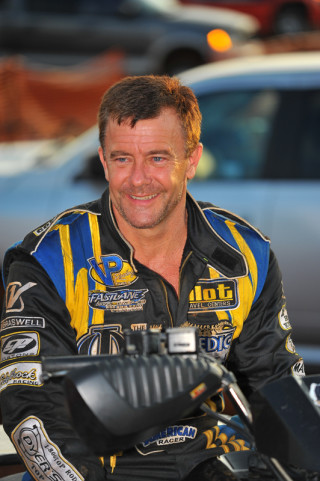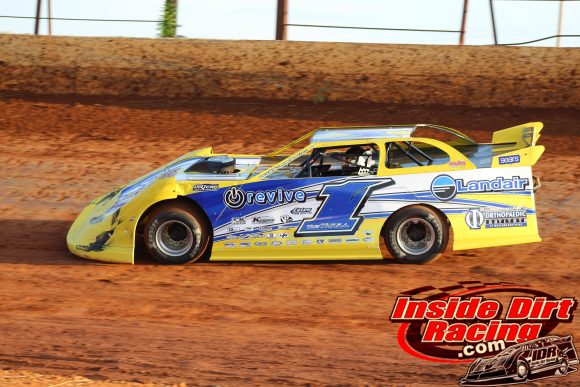*This is the first of two pieces based on an interview with Vic Hill. In this article, Vic offers his views on the sport of racing in general while the second piece to be posted at a later date will focus more on the evolution of racing engines.
As a racer, an engine builder, and even as an occasional promoter, few people have the opportunity to view the sport of dirt racing from as many perspectives as Vic Hill. The accumulator of multiple track championships at Tennessee’s Volunteer Speedway as well as the winner of numerous Dirt Late Model feature races is once again about to embark on a quest to add a Southern Nationals championship to his list of accomplishments when that series kicks off its two week run this Saturday night at Wythe Raceway in Rural Retreat, Virginia.
But Hill recently took the time to share his views on the sport of dirt racing from the local, regional, and national levels with InsideDirtRacing.com.
Needless to say, with so many irons in the fire, Hill is passionate about racing and wants to see the sport thrive. At the same time, he has viewpoints on what it will take to make that happen. And while his Vic Hill Race Engines is primarily geared toward the building of Super Late Model and Limited(Steelhead) Late Model power plants, the racer realizes that the health of the entire sport and every class in it is essential for future prosperity.
He believes that tracks need to have a premier class, such as the Limited Late Models, and pay that class accordingly to encourage racers to want to move up through the divisions.
“On the weekly type shows you’ve got a Crate class and this Sportsman class, which is basically the same speed car, and we need to work on that,” Hill recommended. “We have a Steelhead class that has kind of been up and down in terms of car counts and numbers of shows. Like I’ve told a few of the promoters, this is my opinion and everybody’s got them, when you’ve got a stepping stone class and you pay them whatever you pay them and then you’ve got your premier class and you’re just paying a couple hundred bucks more but you’re asking a guy to spend another ten grand on his engine ,it doesn’t intrigue them to do that to run weekly.”
Ultimately, Hill thinks the end result from the efforts of all those involved in racing should be to produce a quality show for those who pay to watch the product on the track and to create an atmosphere that allows racers and promoters to succeed.
“We’ve got to have something that’s good for the fans and good for the people who want to step up from a Crate or Sportsman into the next level and still have a race that’s different from a Crate race,” he explained. “They’ve(Steelhead cars) got a little more power and a little more action, a little more stuff going on. It’s not quite a Super, but it’s a hell of a good show.”
Hill points out that a new Steelhead engine with top-of-the-line components could cost as much as $25-27,000. At the same time, however, he encourages promoters to look at rules packages that would make those older or less expensive Limited Late Model engines more competitive and thus bring them “out of people’s barns” and back onto the race track.
Hill also believes that there will always be a place in Dirt Late Model racing for regional tours such as the Southern Nationals that he is about to take part in.
“I think the national tours are too expensive to be really big because there’s not that much corporate money there yet,” he said. “It’s people who love the sport that finance a lot of this stuff. What I do see happening is the regional racing where you’re not always racing in the same place but you’re also not travelling to Texas or New York or somewhere that the travel expense is not going to eat you up, you can run a series like this every week and not go broke for a decent amount of money.”
In the end, it is that passion for the sport that will always keep it alive.
“None of us are going to make a lot of money doing this,” Hill insisted. “We do it because we love it. We all have to work together to build the shows up so that the promoter makes money but in turn puts it back in the sport to make it more intriguing for us to come and race.”







